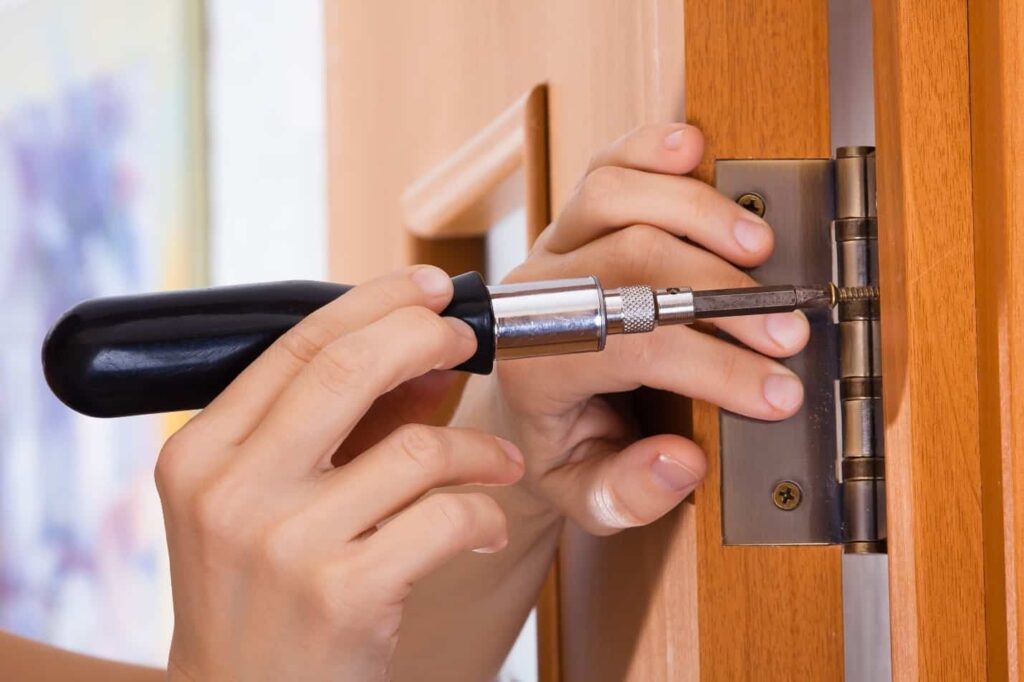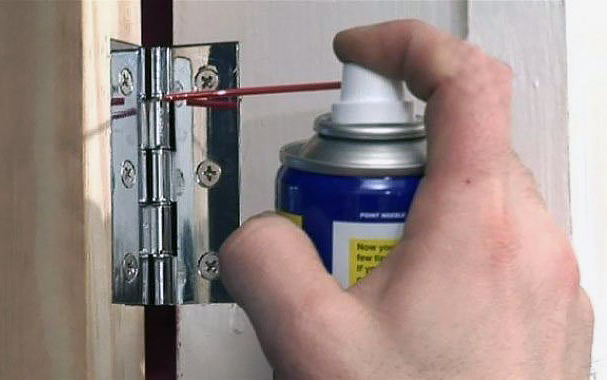Are you tired of that annoying squeaking sound every time you open or close your door? A squeaky door can be a major nuisance, disrupting the peace and quiet of your home. It’s important to address this issue promptly to restore tranquility and prevent further wear and tear on your door.
The common causes of a squeaky door often stem from friction between hinges or lack of proper lubrication. Over time, the metal components can become dry and rub against each other, leading to those aggravating squeaks. It’s crucial to identify the source of the friction to effectively resolve the problem.
In our upcoming post, we will explore practical and effective solutions to silence that squeaky door once and for all. From simple DIY remedies to the best lubricants for door hinges, we’ve got you covered. Stay tuned to discover how to restore peace and quiet to your home with our tried and tested methods.
Identifying the Cause of the Squeak
Is your door making an annoying squeaking sound every time it’s opened or closed? The first step in fixing a squeaky door is identifying the cause of the noise. Understanding the underlying issues will help you implement the appropriate solutions. Let’s explore the common culprits and how you can troubleshoot them.
Check for Loose Screws or Hinge Misalignment

Loose screws or hinge misalignment are frequent causes of door squeaks. Over time, the constant movement of the door can lead to screws becoming loose, or hinges shifting out of alignment. To tackle this issue, start by examining the screws on the hinges and the strike plate. If they are loose, tighten them using a screwdriver. Also, check if the hinges are properly aligned. Misaligned hinges can place undue stress on the door, resulting in squeaks. To realign hinges, loosen the screws, adjust the position, and then retighten.
Assess the Level of Lubrication
Adequate lubrication is imperative for smooth door operation. Lack of lubrication can cause friction between moving parts, leading to squeaks. Regularly inspect the hinges, doorknob mechanism, and latch for signs of wear or dryness. Apply a suitable lubricant, such as silicone spray or WD-40, to these areas. Alternatively, you can use household items like olive oil or petroleum jelly as effective lubricants. Remember, a well-lubricated door moves quietly and effortlessly.
- To learn more about lubricating door hinges, check out this article on Door Lubrication
By addressing these common issues, you can effectively diagnose the source of the squeak and take the necessary steps to remediate it.

DIY Solutions for a Quieter Door
Is your squeaky door driving you up the wall? Before you rush out to buy a new one, try these simple do-it-yourself fixes. You may be surprised at how a little maintenance can quiet things down.
Applying Lubricants to Hinges
Start by gathering a lubricant such as WD-40 or silicone spray, a cloth, and a step stool if needed. Begin by wiping the hinge area clean with the cloth to remove any existing debris. Apply a small amount of the chosen lubricant to each hinge, focusing on the pivot points. Use a cloth to wipe away any excess to prevent drips and mess. Avoid over-saturation, as this can attract more dirt and create a mess.
Tightening Screws and Adjusting Hinges
Use a screwdriver to tighten any loose screws in the hinges and door hardware. After this, check the alignment of the hinges. If the door is still noisy, slight adjustments to the hinge position may be necessary. Minor adjustments can positively impact door alignment and reduce noise levels.
Addressing Hinge Rust and Corrosion
For rusty or corroded hinges, you may need to consider using a rust remover or DIY household items like vinegar for mild cases. Applying a rust remover with a brush and letting it sit for a few minutes can help eliminate rust. Alternatively, soaking the hinges in vinegar for a few hours can also aid in removing rust or corrosion.
Exploring Household Lubricant Alternatives
If you don’t have traditional lubricants on hand, household items such as cooking oil, paraffin candles, or beeswax can serve as temporary lubricants for squeaky doors. While not as long-lasting as commercial alternatives, these household items can provide temporary relief from door squeaks.
Remember, regular maintenance of your door hinges can prevent future squeaks and extend the life of your door. By following these simple DIY solutions, you can enjoy a quieter and smoother door without breaking the bank.
Seeking Professional Assistance
When it comes to fixing a squeaky door, there are instances where seeking professional assistance becomes necessary. Below, we discuss the signs that indicate the need for professional intervention and offer guidance on finding reliable door repair services.
Knowing When to Call a Professional
If your door continues to squeak after attempting the DIY fixes or if you notice severe hinge damage, it’s a clear indicator that professional help may be required. Structural issues that affect the door’s alignment or significant wear and tear on the hinges should not be overlooked, as they can lead to further complications if not addressed promptly.
Locating Reliable Door Repair Services
To find reputable door repair professionals or handyman services, consider seeking recommendations from friends, family, or neighbors who have had similar work done. Online platforms such as Yelp and Angie’s List can provide valuable insights through customer reviews and ratings. When searching for a professional, look for certifications or affiliations with industry organizations, as this can indicate a higher level of expertise and commitment to quality work.
Preventive Maintenance for Squeak-Free Doors
Maintaining your doors is crucial to prevent squeaks and ensure their longevity. By establishing a regular lubrication schedule and conducting quick checks for hinge integrity, you can keep your doors operating smoothly and quietly.
Establishing a Regular Lubrication Schedule
Regular lubrication is essential for keeping door hinges functioning properly and quietly. It’s advisable to create a lubrication schedule, depending on the type of lubricant and frequency recommended by the door manufacturer. Typically, it’s best to lubricate the hinges every six months to a year, but this may vary based on usage and environmental conditions.
Quick Checks for Hinge Integrity
Performing quick routine checks on the hinges can help detect early signs of wear and tear, preventing potential squeaking issues. Start by examining the hinges for any visible damage, such as rust, bending, or misalignment. Additionally, listen for any unusual sounds when opening or closing the door, as this could indicate underlying hinge problems that need attention.
Conclusion
In conclusion, a squeaky door can be a real nuisance, but with the right knowledge and tools, it’s a problem that can be easily solved. By addressing common causes such as hinge friction and lack of lubrication, you can take DIY action to silence those annoying squeaks. Whether it’s using household items like olive oil or vegetable oil, or specialized lubricants like silicone grease or petroleum jelly, there are plenty of solutions to choose from. However, if the issue persists or if the door is misaligned, it may be time to seek professional help to ensure proper repair and maintenance. Remember, proactive maintenance, such as regular lubrication and hinge inspection, is key to preventing future squeaks and maintaining a peaceful home environment. Don’t let a squeaky door disrupt your tranquility – take action today to keep your doors silent and your home serene.
